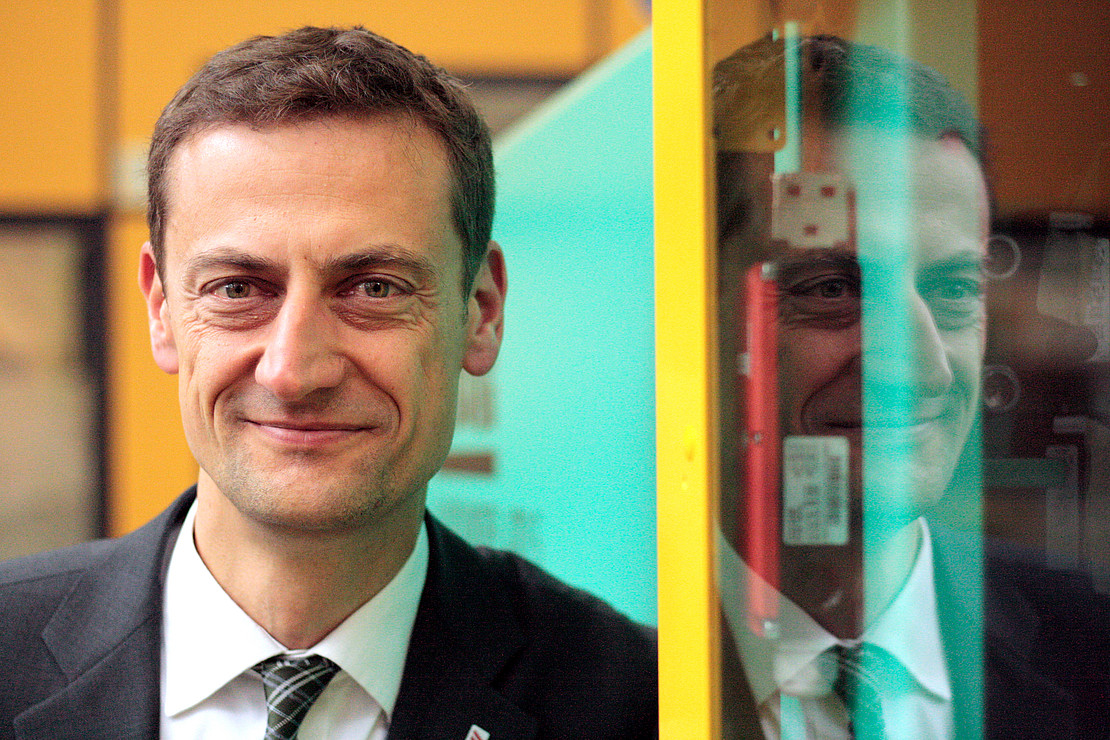The content on this page was translated automatically.
"Things are also possible during Corona" - Digital teaching in plastics technology
 Image: University of Kassel.
Image: University of Kassel.Mr. Heim, since April 20, German universities have been teaching exclusively in digital form. That is certainly no easy task for many. How are you preparing for this unusual summer semester at the Department of Plastics Technology?
In my case, the courses are quite different - on the one hand a lecture with more than a hundred students, on the other smaller formats with up to 15 people or smaller practicals.
The large lecture has always been a classic frontal lecture. However, I don't assume that programs like Zoom or the German Research Network (DFN) app will work completely smoothly with large numbers of participants. Therefore, we have changed the large lecture to three parts: each chapter consists of a basic part with written or spoken text and a more in-depth part, which is worked out in self-study on the basis of the first part. There will be additional videos to support this. For this lecture I will use Moodle and YouTube and want to give the students a safe starting position for the exam by the concept.
We will adapt the content of the smaller lectures so that they can be run via DFN. I will hold these on the usual lecture dates and would like to give students the opportunity to contribute via an audio connection as well. Two such lectures have already taken place on April 20 and the feedback from students has been positive. For the practicals on machines and test equipment, we are currently hoping to be able to hold these towards the end of the current semester with very small groups of 2 people each.
You have obviously given some thought to the realization! Are you currently keeping in touch with students as well? If so, how? And how is the supervision of students who are about to graduate going?
We keep in touch with students via videoconferencing while their final projects are in progress. There have also been two graduation colloquia via DFN. The students presented their work via the streaming service, and supervisors and other members of the institute took part, were able to ask questions, and awarded the grade for the colloquium at the end. This went very well, so we have already planned more such colloquia for the near future.
Bachelor's and master's theses in our department usually involve practical work in the laboratory or pilot plant. For students who have already completed the practical part, this is of course no problem now. The others either have to wait until access to the Technikum is possible again or change the ratio between practical and theoretical part. But we always find individual solutions here.
So in most cases it's a successful changeover. But surely there are also things you have to do without at the moment?
Of course, a video conference is not the same as a face-to-face meeting or a discussion in a group. But it works well and is largely unproblematic. What hits us harder is the very strong reduction of work in the pilot plant and in the laboratory. The institute's employees are therefore concentrating more on work that can be done in the home office, i.e. writing publications, formulating research proposals, working on the dissertation or researching literature. In individual cases, however, particularly important series of experiments can also be carried out with appropriate protective measures.
For you personally, is there anything instructive from the current situation that you can take with you into the future?
Definitely: the institute's employees reacted very flexibly and responsibly to the situation, and so we were able to integrate everyone in the current home office well - even those who actually do more practical work, such as technical staff or student assistants. We have a special responsibility towards the latter group in particular. It's all the more pleasing that the current situation under Corona has shown us that a lot is possible here.
Video conferencing cannot replace real meetings entirely, but it can do so well in many cases. This is particularly interesting for future business trip planning. I think that not only at our university many trips by car or train could be replaced. This could permanently reduce emissions and energy consumption by using less traffic. I hope there will be something left of this after Corona.
Interview: Kristina Weissbecker.